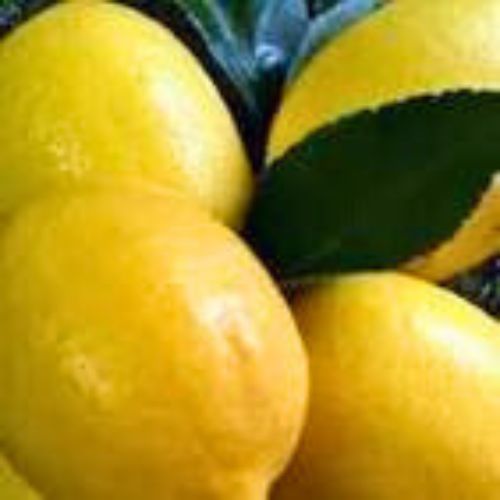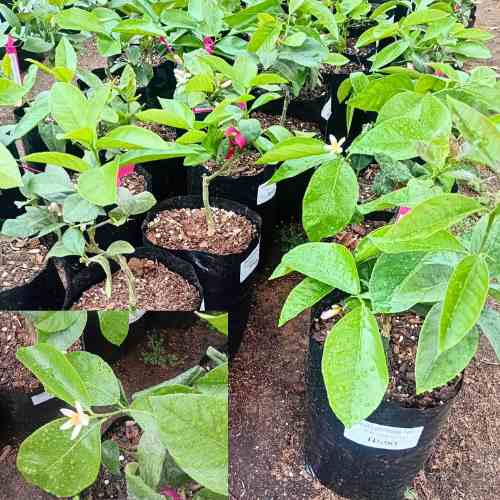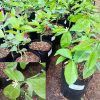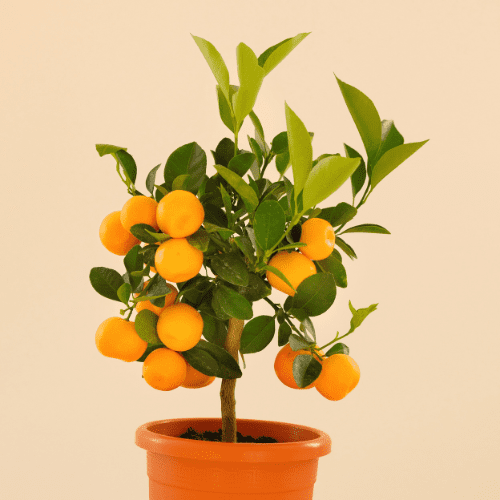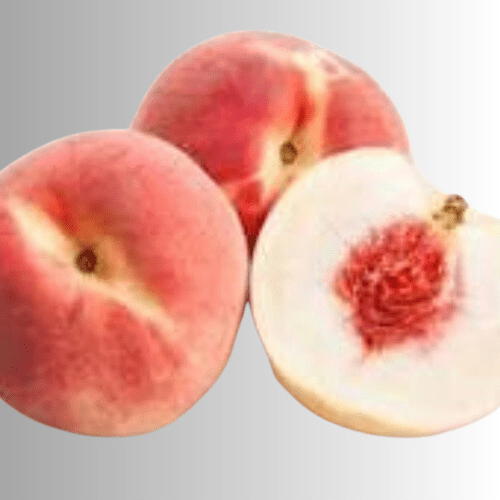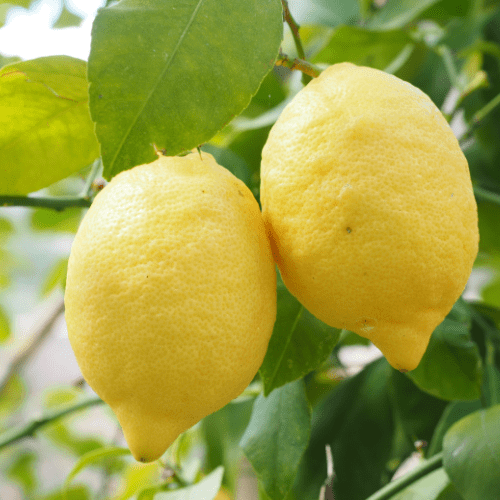Position
Plant your lemon tree in full sun. Although they tolerate wind well, they do better when they’re in a more sheltered spot. They don’t do well in frosty conditions. If your area is subject to frost, be sure to protect your tree by covering it with a sheet of plastic and, if it is very cold, a blanket. Plant your trees up to 5m apart, but closer if you wish to create a hedge.
Size
These lemon tree typically reaches a height of approximately 2 metres and are perfect for container planting. Pruning will keep them compact.
Soil Type
Opt for a well-draining soil (sandy or loamy soil) that allows the roots to extend into it and does not become waterlogged. A pH of between 5.5 and 6.5 is ideal.
Watering
Your tree needs to be watered regularly, especially when it is newly planted, to help it establish itself. Then, reduce the amount of watering. During the summer, water it once a week. In the wetter winter months, water it only every second week.
Mulching
Add a thick layer of pine bark mulch, keeping it about 20 to 30 centimetres away from the tree trunk (any closer may cause excess moisture and damage the trunk). This will retain the moisture in the soil and will prevent weeds from taking over.
Fertilising
Apply 1 teaspoon of our slow-release nitrogen-rich berry fertiliser every 4-5 months.
Pruning
Remove all of the suckers along the tree trunk and excess fruit while they are still small. This allows the tree to focus on healthy, established branches, fruits, and leaves. Only prune it during winter.
Pests and Diseases
Aphids, citrus psylla, red scale, citrus greening. Spraying regularly with Agricultural Neem Oil or Effective Microorganisms (EM Control) will assist in either prevention or after the fact. If you already have aphids or mites, wash the tree with a harsh hosing, and when dry, spray with Neem oil or EM Control.
Practice good garden hygiene (remove fallen fruit and leaves).
Watch for root rot (caused by overwatering) and fungal infections during wet periods.
Harvesting
“Lemonade” is a variety of sweet lemon, which is available year-round for home use, but is more prolific in winter.

